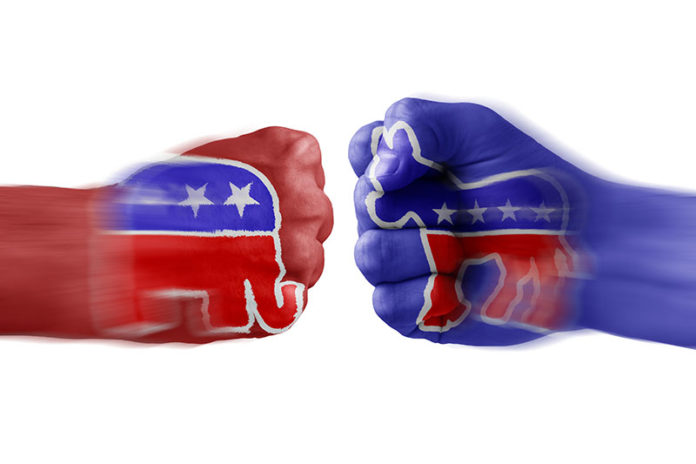If you want to confirm the folly of liberal policies, Illinois is not a bad place to start. The total tax burden is the ninth-heaviest in the country. Its 2018 private sector job growth was among the worst in the country.
It has a terrible credit rating because its debts are so enormous. And a lot of Illinoisans are losing hope and bailing out. The state population has declined for five straight years.
Democratic Gov. J.B. Pritzker thinks the way to address the gap between the state’s obligations and its ability to pay is to enact a graduated income tax. But if high taxes are driving people out of the state, making it easier to raise tax rates won’t lure them back.
The Land of Lincoln is not alone in this problem. New York, which has the highest total taxes in the country, is also bleeding population. The biggest share of those leaving go to Florida, which has no personal income tax and ranks fourth-lowest in overall taxes.
California, which ranks sixth-highest in total spending per capita, also suffers from fleeing residents. Between 2007 and 2016, a million more people moved from California into other states than went the opposite direction. Though immigration has kept its numbers from shrinking, the state’s population growth last year was the lowest in its history.
States like these, long dominated by Democrats, take pride in their generous public programs. But while citizens may vote for such outlays, they bridle at paying for them. The result is a vicious circle: The more these states (and their local governments) spend and tax, the more people leave, which means the burden on those who stay rises, which induces more to escape, and so on.
This should be good news for conservatives. But they have an equally serious problem: Many voters who like conservative rhetoric, it seems, don’t actually want conservative policies.
After years of being a minority party, the GOP gained hundreds of seats in state legislatures between 1990 and 2016, as well 23 additional governorships. In 1990, Republicans had full control of only three states. By 2016, the number was 23.
That drastic change in partisan strength should have brought out a drastic overhaul of state policies. But Michigan State University political scientist Matt Grossmann, in his forthcoming book, “Red State Blues: How the Conservative Revolution Stalled in the States” (Cambridge University Press), says that’s not how it worked out.
After crunching all the data, he concluded, “The increasing Republican control is associated with either no change in the size of government or an insignificant increase in state spending.” Nor did Republicans generally cut taxes much.
In Kansas, Republican Gov. Sam Brownback slashed taxes and spending after his 2010 election – only to spark a backlash in the citizenry and his own party. The GOP-dominated legislature eventually repealed most of the tax cuts and boosted outlays on education. In 2018, voters installed a Democratic governor.
Grossmann did find a gap in total spending between states that Democrats fully control and states the Republicans fully control. The Democratic states, on average, spend 13% of gross state product, while the Republican states spend . . . 12.7%.
On social issues, the evidence is mixed. Some red states have enacted stricter abortion laws and expanded the rights of gun owners. But Grossmann says most of the changes have come in states that already had conservative policies – not in states that had liberal ones.
Some red states have passed “right-to-work” laws and weakened bargaining rights for public employees. But in Wisconsin, those measures helped mobilize Democrats to evict Republican Gov. Scott Walker last year.
At the federal level, it’s also obvious that electing Republicans doesn’t necessarily lead to conservative policies. Under Barack Obama, spending fell as a share of GDP; under Trump, it has risen. Between 2009 and 2016, the budget deficit was cut by more than half. Since then, it has nearly doubled.
Here is the paradox of our politics: The public doesn’t like paying for liberal programs but doesn’t want to scrap them. Democrats are better at catering to the public preference for a strong safety net than at making it affordable. Republicans may slow the expansion of government, but they are rarely able to reverse it.
Americans often complain that politicians don’t give them what they want. Politicians would be justified in replying: When you figure out what that is, let us know.






























